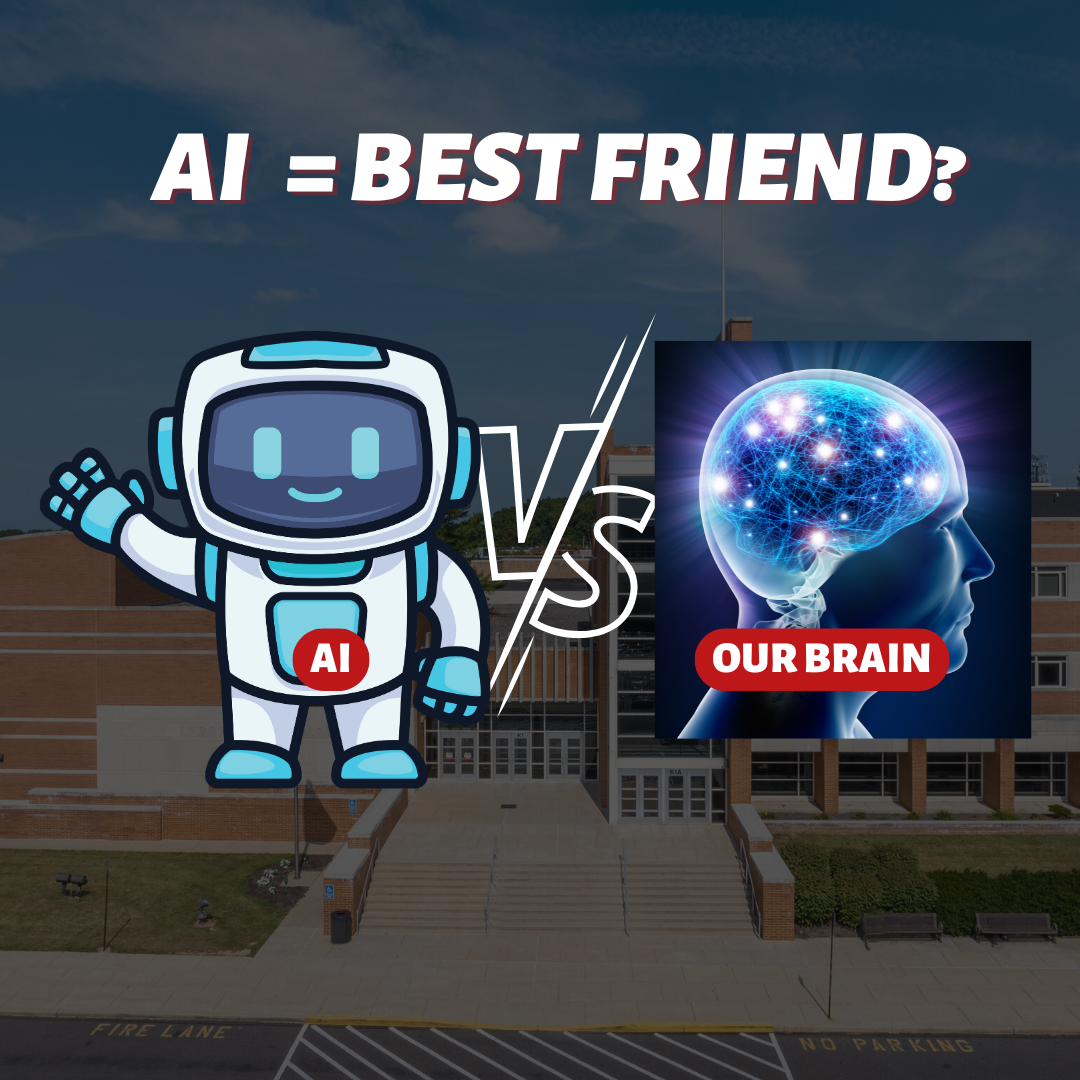From helping with homework, to even coming to the point where it can manufacture automobiles, there’s no doubt that AI is seemingly our best friend, a miracle that is loved by everyone by making lives easy. However, can we really call it ‘best friend’ when all it’s doing is making us lazy?
Before fast Google searches and AI, students used to delve through multiple books just to get their homework done. By going through multiple books, it also served as a purpose of absorbing other information which would be beneficial. The scenario isn’t the same nowadays. You want to get your homework done? All you do is just hit the chat GPT search bar with the respective question and the solution comes all ready and organized. No human interaction, no utilizing the brain, nothing. JUST HIT THE SEARCH BAR. As much as it sounds convenient, students are excessively dependent on AI. It is affecting their education likewise as a result of lacking critical thinking and being deprived from using their own brain to solve problems by going from book to book. Their creativity is shattered from not being able to utilize their brain of its own. High advancement of technology is what gives advantage to students to use AI in order to cheat in exams.
The borderline between reality and fantasy is blurred. Just think about this: we are existing in a world where not only does a machine made up of plastic perform its own task but also performs everything that outsmarts us, everything one would kill to accomplish. A 14 inch box keeps each and every bit of world news where our ancestors back 50 ago used to pay a subscription to a newspaper just to get them from doorstep everyday and go through 20 pages in order to come across the specific news that they were looking for. But along with that came reading skills and the absorption of a lot of variety of information.
According to the article published by The Stanford Graduate School of Education, “There’s been a ton of media coverage about AI making it easier and more likely for students to cheat,” said Denise Pope, a senior lecturer at Stanford Graduate School of Education (GSE).
According to a study conducted by Havard, of generative AI users ages 14–22 surveyed, 31% said they use it to “make pictures or images,” while 16% “make sounds or music” and 15% say they use it to write code.
However, despite all its reliability and swiftness, AI does not necessarily always give precise information. It won’t delve inside our mind to bring out the precise idea we intend to work on. At the end of the day, the human brain itself is irreplaceable.


